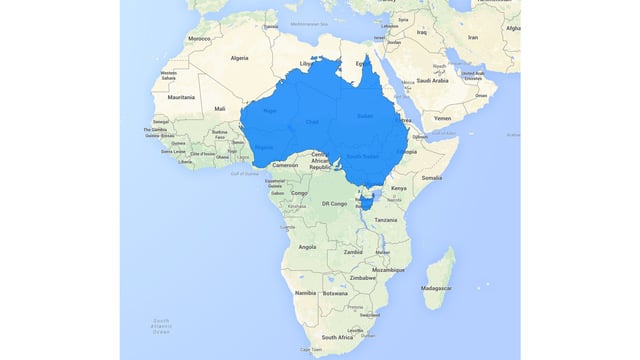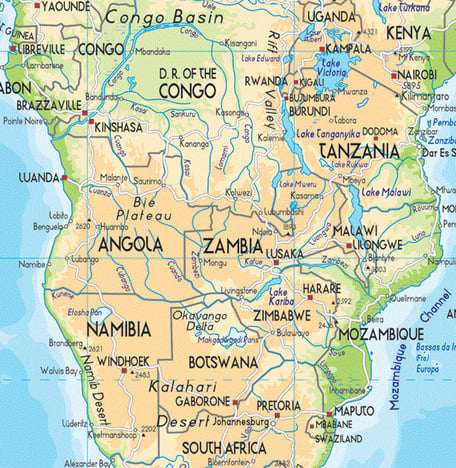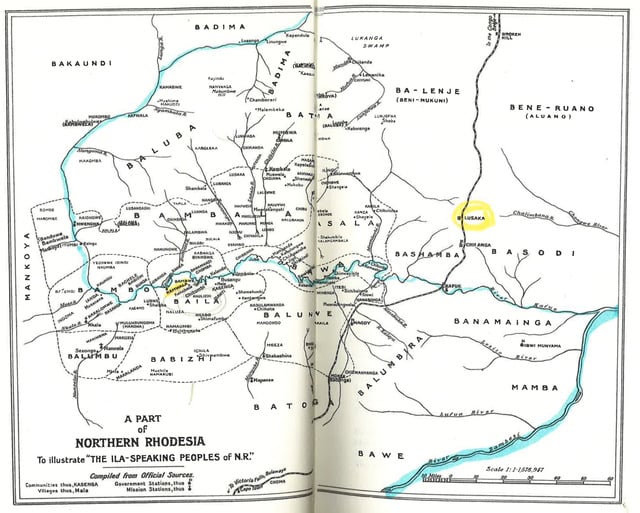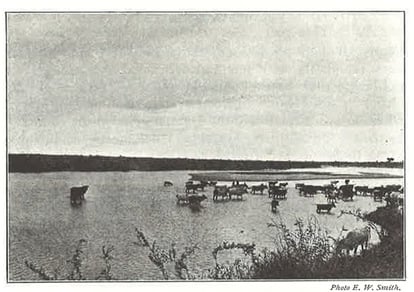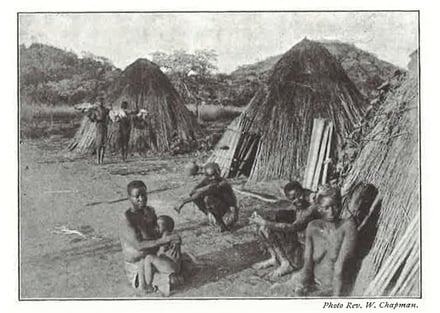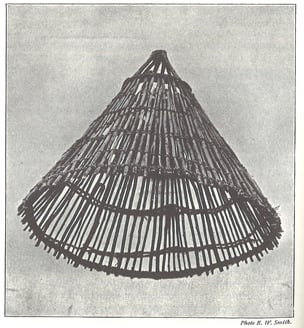Video & Transcript titled
‘Franklin’s Home, Africa and “The Arms Race”’,
which has Jeremy Griffith talking with Franklin
Mukakanga in Sydney on 25 Feb 2017
(This video is part of the ‘Candid Discussions’ series that appears on our WTM Community page at www.humancondition.com/community/#candid-discussions)
Jeremy: I thought I’d try and tell you a little bit about where Franklin comes from.
You can fit about three Australia’s—and Australia is a huge continent—inside Africa. That’s the first point, how big Africa is.
There are two big plates that make up Africa and they have been running into each other over millions of years forcing lava to flow out from inside the Earth and form these high elevated plateaus right down through the centre of the continent, and at the base of the plateaus are these massively deep lakes which include Lake Victoria, Lake Tanganyika and Lake Malawi. Zambia and Zimbabwe used to be called North and South Rhodesia, and there’s a huge river called the Zambezi, which Victoria Falls is at the headwaters of, that separates Zambia from Zimbabwe before it eventually flows out to the sea at the coast of Mozambique.
A northern tributary to the Zambezi is the Kafue River, the largest river in Zambia, and it’s shaped like a big hook and has its source on a volcanic plateau, a lot of which is nearly as high as Mt Kosciuszko, the highest mountain in Australia at 7,300 feet or 2,230 metres, which is interesting because even though you’re very near the Equator, when you’re on this plateau, which runs through Nairobi in Kenya, it’s relatively cool. The light there is brighter and the air is thinner. People often comment about the light when they go there—because it’s thinner air, the blue is so blue.
It really is amazing when you go to Africa and you have the feeling you’ve been there before because we’ve got this huge memory of having lived there during our ancestral past. All the fossils that have been found up around Lake Turkana in Kenya and Ethiopia, even down in South Africa and right through central Africa, reveal that early humans lived here, so it’s part of our instinctive memory [see Freedom Essay 22 on fossil evidence from our evolutionary past]. The bonobos live in the Congo River basin in southern Democratic Republic of the Congo, but the gorillas and the common chimpanzees aren’t found south of the Congo River, so the bonobos have lived separated from the other great apes [see F. Essay 21 for more on the bonobos]. The Bushmen or San people lived down in Namibia and Botswana in the Kalahari Desert, and Sir Laurens van der Post lived down in South Africa [see F. Essay 51 for more on Sir Laurens and the Bushmen].
Lusaka is the capital of Zambia and Zambia is home to the Ila-speaking people which are Franklin’s people. Some of the early explorers thought that this valley where the Kafue River hooks around was the most fertile valley in Africa because it drains off a basalt plateau and it’s very rich soil. So that’s where the Ila were from, in what was then called Northern Rhodesia, and they didn’t encounter Europeans until 1880.
I’ve been reading a two volume book called The Ila-Speaking Peoples of Northern Rhodesia, written by Rev. Edwin W. Smith and Captain Andrew Murray Dale in 1920, which contains the following map of the home of the Ila people in the area around the Kafue river:
Below is an image from the book of the Kafue flood plain with the Ila-speaking peoples’ cattle on it:
So it’s a big wide flood plain, very fertile, and the Ila lived in villages in huts like these:
That’s the way everyone lived. So Franklin’s uncle still lives in a village like this where the Chief would sit outside and take counsel and deal with all the problems that were coming in, disputes and so forth.
So that’s the mighty Zambezi River and that’s the Kafue River [referring to the map from The Ila-Speaking Peoples of Northern Rhodesia above]. And this region is where the Ba-ila are from which is Franklin’s tribe [circled in pencil on map], and his actual tribe is this one here, right in the middle, smack in the middle called, Namwala [see yellow highlight on left of map].
Franklin: No, that’s the name of the village.
Jeremy: Oh, that’s the name of the village.
Franklin: Yeah. But it is there, yes.
Jeremy: So your tribe is the…?
Franklin: Ba-ila.
Jeremy: The Ba-ila. So they are living smack bang in the richest part of the richest valley in Africa, which, psychologically, is interesting because there were other tribes trying to raid them because they had thousands of cattle. They don’t work the cattle, they don’t use them for ploughing or anything, they know them by name and they treasure them. They milk them and occasionally they’ll eat one in a feast situation.
So some of the raiding tribes would come around and try to steal their cattle and in one raid they stole 40,000 head. So they had massive herds of cattle living in this place and all the tribes were warring between each other. Once, humans lived innocently and cooperatively and there was enough love in society to heal any upset that started to emerge, right? For a long time there was more love than upset, but at a certain point it makes sense that there was not enough love to heal upset. At that point, it’s on for young and old, because from there on it’s a case of the ‘arms race’—who can get toughest quickest. [See pars 904-917 of FREEDOM for more on the ‘arms races’ that developed between competing groups of people.]
Right around the world it’s a case now of who can be the most ruthless quickest. The Aztecs were a small tribe living in Northern Mexico who were the first to realise that trying to trust in everybody being loving towards each other was over. They said, ‘let’s become a warrior nation’ and they did, they conquered all the tribes to the south and took over Mexico.
The same thing happened in the Midwest of America with the Plains Indians. The Sioux were a small nation living along the Mississippi River and they were the first of the American Indian tribes to get the hang of this, that it’s on for young and old, whoever can get toughest quickest wins. They were determined to make themselves into a warrior race and so they selected for more and more toughness and turned themselves into that warrior race.
So it doesn’t matter where you look around the world, there’s this breakout of upset. Basically, you can work out that it must have happened with the advent of agriculture which was somewhere around 10,000 years ago when we started domesticating animals and crops which allowed for a sedentary life with people gathering together in villages, and suddenly upset started increasing rapidly. So, we can guess that upset starts getting out of control and this ‘arms race’ begins some 10,000 years ago, which is all fairly recent.
From 2 million years ago when consciousness first appeared right up to only 20,000 years ago, love was still in the ascension, even though upset was increasing, and during this period it was still a matriarchal society [see par. 810 of FREEDOM]. The really upset story started happening in the last 10,000 years and it makes sense that the biggest ‘arms race’ of all happened in central Europe where you had early tribes living along the Tigris-Euphrates River and the Upper Nile River, and you had all these escalating battles. Basically, it developed into a war between the Aryan people, the Caucasians from the Steppes in the north, and the Semitic races. They clashed in the middle around Syria and it got more and more ruthless; one would up the ante and get more ruthless than the other and so on. The first people to form a big civilisation were the Hittites in Turkey. They dominated the northern region and the Egyptians were dominating the southern region, then they had a great war which was basically a draw and they used diplomacy from then on to try to get along. But after a little while the Assyrians and other groups got more and more ruthless. As groups of people amalgamated, great warlords started emerging and dominating everybody and getting more and more ruthless. The Hittites were reasonably ruthless but the Assyrians who followed after them would kill everybody in the city. They would skin all their leaders and they’d pile everyone up outside the city gates and drape the skin of their leaders over this pile of bodies as a warning. So that’s how horrible it all got. [Again, see pars 904-917 of FREEDOM.]
So now what we’ve got is the same situation happening down here in Africa, because when the Boers landed in South Africa and started moving north there were only Bushmen living in southern Africa, but the Bantu culture emerged in west Africa. They were selecting for taller and bigger people who were musical and athletic and all that sort of stuff, so they got their shit together and started migrating south. Some of them went north around the sub-Saharan belt, and they melded with the Egyptians—some of the early Egyptians were actually Bantu, they were dark skinned, so you get these Nilotic tribes that were infused with the Arab influence and they’re more warrior-like and they are mostly cattle herders. You can see it in the clash between the Hutu and the Tutsi in Rwanda. The Tutsi are Nilotic people, cattle-raisers and they’re very tall, very arrogant believing they’re elite, and the Hutu were mostly Bantu that had come around the western side of the Congo Basin and they’re not as statuesque as the Tutsi. So you get this huge war between them because the Hutu resented these people that believed they should rule over them so they had a huge bloodbath in Rwanda and I think the Tutsi are back in control, aren’t they?
Franklin: Yes, they are.
Jeremy: So wherever you go it’s the same old battle that’s happening. But what’s interesting in terms of Franklin’s story, if you read The Ila-Speaking Peoples of Northern Rhodesia, the same thing was happening in Zambia. You’re going to get more and more powerful warlords emerging, like there’s a particular warlord called Sebetwane who was a great warrior and chief and established a powerful nation in what is now south western Zambia. At the age of 20 he had attracted 30,000 warriors around him so he must have been very charismatic, very able, and he swept up from somewhere south along the Zambezi River; he’s actually not Ila?
Franklin: Yes, that’s right.
Jeremy: And he started overpowering all these people around Zambia and dominating them.
Shaka was another great war chief who emerged amongst the Zulu nation in South Africa and Shaka’s technique for warfare was, he had a short stabbing spear and he had what were called Impis, huge regiments of warriors, who could run all day. They actually destroyed a whole regiment of the British army. The British make a big song and dance about the fact that they held the Zulus out at the Battle of Rorke’s Drift in South Africa, but one of the reasons given for why the Zulus didn’t succeed, even though Shaka’s Impis had just wiped out a whole regiment of the Brits, was because Shaka had been sending a lot of his Impis north to conquer this region of central Africa. This guy, Sebetwane, who was a very clever general wasn’t he, Franklin? He had all these tricks, and in one case he stranded the Zulus on one side of the river and then killed them all and only one warrior managed to get back to Shaka down south. So Shaka lost some of his best warriors in these wars that he was fighting up north. So when he sent his Impis to fight against the Brits he didn’t have a full contingent because some of them had been wiped out already by these earlier battles. So it’s the same old story, who can get toughest quickest.
See, discussion of this kind has been off limits because we’re being told that the human race was once brutish and aggressive not that we were once innocent. So the whole thing opens up and makes sense once we can admit that we were once innocent and we’ve become more and more upset. If you read chapter 8 of FREEDOM it contains the whole amazing journey of the increase of upset, which has never been told before, we’ve never even admitted that the human species was once innocent. [See also F. Essay 28 for the real discussion on racism.]
Getting back to Africa, then the Europeans arrived, the missionaries, which, you can understand, Franklin resented before he understood the human condition; the missionaries stopped the warfare and the British put administrators in to try to control all the warring tribes. Volumes I and II of The Ila-Speaking Peoples of Northern Rhodesia, were actually researched by a missionary, Rev. Edwin W. Smith, and an administrator, Captain Andrew Murray Dale, and it’s a pretty detailed record of the lives of the Ila.
The Ivhumbo fish-trap photographed by Rev. Smith
So, it’s the same old story of who can get toughest quickest. But if you stand back from that, what’s interesting to think about, is that if you look at the first Greek civilisation, they only selected shepherds to be their rulers [see par. 747 of FREEDOM]: they selected prophets/innocents. And the Old Testament of the Bible is a collection of the rare denial-free thinkers that emerged in that time from the Hebrew people. The ancient Hebrews didn’t want to collect their best tennis players, or their strongest warriors, they were innocent enough to recognise the importance of soundness, and they selected those people to defer to [see par. 927 of FREEDOM]. Nowadays all we do is persecute prophets/truthful thinkers and make their life a misery, which is Stefan and Franklin’s story when you get into it because they are ‘ships at sea’, that didn’t resign [See F. Essay 30 about Resignation and ‘ships at sea’]. But the early Greeks used to only select for innocence, but at a certain point you can see it’s the same story, ‘let’s get tough.’ The egomaniacs are saying, ‘fuck you, little shepherds, coming in and ruling over us’, so soon, very soon it became the most egocentric that win power.
At that point democracy was introduced and that’s supposed to contain the tyrants. But there was a time when everyone was innocent enough to allow innocence to rule which makes sense. So now standing back from this situation, these guys, the Bantu, came down from north west Africa, and some of them looped around central Africa and they must have brought cattle down from there, because the Bantu down in Zambia are farmers and graziers. These guys, the Ila-speaking people, have these huge herds of cattle so they’re graziers mostly, and so they must have brought cattle down, and like the Tutsi they are Nilotic people, and so they have some Nilotic influence as well as Bantu influence.
So the Boers had to decide who had the right to South Africa, for example, in terms of ownership. The Bantu can’t say they do because the whites arrived at the same time. It’s the Bushmen that had prior ownership, not the Bantu or the Europeans. The interesting thing from my mind’s point of view is when you’re at that early stage in the human condition journey where levels of upset in humans are still relatively low, but we’ve still become power addicted, and it’s a case of the most power addicted grabbing the power. But at this point they’re still innocent enough to select their soundest people to rule them, those who are most able, genuinely able, not the most egocentric. There must have been a time here when everyone’s trying to pinch your bit of land and all your cattle because you’re sitting in the best bit of valley in Africa, and you can withstand these onslaughts, these raiding parties from all the neighbouring tribes, and you’re still dominating. The Ila, Franklin’s people, are right smack in the middle, so you can work it out that they must have been amazingly resilient and courageous to defy all these people that are trying to pinch their land. If you think about it, you’re under siege and everyone’s attacking you, and you’re still relatively innocent, then the people you would elect as your leaders wouldn’t be the most powerful like Julius Caesar or Alexander the Great, you would elect the soundest.
Van der Post talks about the early Greeks having done this, they selected genuine leaders, selected the person who stood up and said, ‘I can help, I’m imaginative enough, sound enough in myself to help in this desperate situation our tribe is in.’ [Again, see par. 747 of FREEDOM.] So you would get genuine leaders and the line of chiefs would descend from possibly exceptional individuals who were the born leaders, in the sense that they were sound and secure and able.
We wonder at Franklin’s amazing skills at the age of six reading college-level text books and being able to play the piano like a dream. I mean, maybe he’s from an exceptional line of chiefs that were selected because of their real quality. That’s his village right smack in the middle of the best part of Africa. It’s amazing to think about it, what we might have access to in Franklin. He’s a genuine leader of his people, and now having found this information he’ll be able to give them the best leadership they’ve ever had. So out of the most obscure corner of the world, one of the first WTM centres is being set up by this chief from the heart of Africa! It’s quite interesting to think about; I’m still getting to know Franklin, like he’s getting to know us.
By the way, Franklin was born up the top end of Zambia, near the Congo border, in Ndola. It’s a big town, and then he went from there to Kitwe which is another big town near the border before ending up at Lusaka. So born in Ndola, grew up in Kitwe, but his tribe is from Namwala on that bend in the Kafue River. When Franklin was young, instead of going to university, he just went bush for a couple of years, and he went up to a farm and was a missionary up there. He’s always had this determination not to go and see the European countries like all his other African friends. He wanted to stay close to nature and he disowned all that rubbish because he was an unresigned prophet. Anyway, is that roughly right Franklin?
Franklin: Yes.
Jeremy: So this is a whole new discussion and description of our world.


